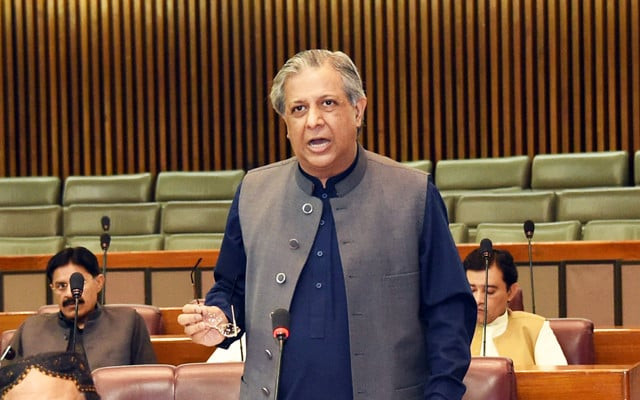Tarar criticises 'clogged' judicial system
Minister informs National Assembly of government's plans to comprehensively amend criminal law

Federal Minister for Law Azam Nazeer Tarar informed the National Assembly on Thursday that the federal government plans to introduce comprehensive amendments to the country's criminal law, which he said still reflects a colonial legacy.
Speaking during the question hour, Tarar said the criminal law has not been updated for a long time. "We are therefore bringing a comprehensive package, which will soon be presented in parliament following approval by the federal cabinet."
He said the proposed amendment bill will set a timeframe for the submission of charge sheets and the completion of trials.
Tarar also criticized the judicial system for being clogged with a massive backlog of cases, resulting in people languishing in jail for years before being acquitted.
"However, when we propose increasing the number of judges in the Supreme Court, we are met with criticism," the minister remarked.
Amid judicial politics and growing tensions within the Supreme Court, the upper house of parliament referred a private member's bill to one of its committees on September 4. The bill seeks to increase the number of Supreme Court judges from 17 to 21.
The timing of the bill is significant, as the government has challenged a majority order from the Supreme Court's 13-member full bench. On July 12, this bench revived the PTI as a parliamentary party and paved the way for it to reclaim reserved seats in the national and provincial legislatures.
The majority order was endorsed by eight Supreme Court judges, while five members, including Chief Justice of Pakistan Qazi Faez Isa, wrote dissenting notes.
If more "like-minded" judges are appointed to the Supreme Court after the amendment, and the government's review petition is heard by an "enlarged" full court, the situation could change in the government's favor, potentially diminishing the PTI's influence in parliament.
The law minister stated that the superior judiciary still operates in a colonial-era manner. "We need legislation that benefits the people," he emphasized.
Referring to presidential ordinances, Tarar said an ordinance can be presented when the assembly is not in session.
"The ordinances issued during the caretaker government's tenure have been presented in the house. Now it is up to the house to adopt or reject them. The government has no involvement in these ordinances. It is within the house's authority to amend, approve, or reject them."



















COMMENTS
Comments are moderated and generally will be posted if they are on-topic and not abusive.
For more information, please see our Comments FAQ